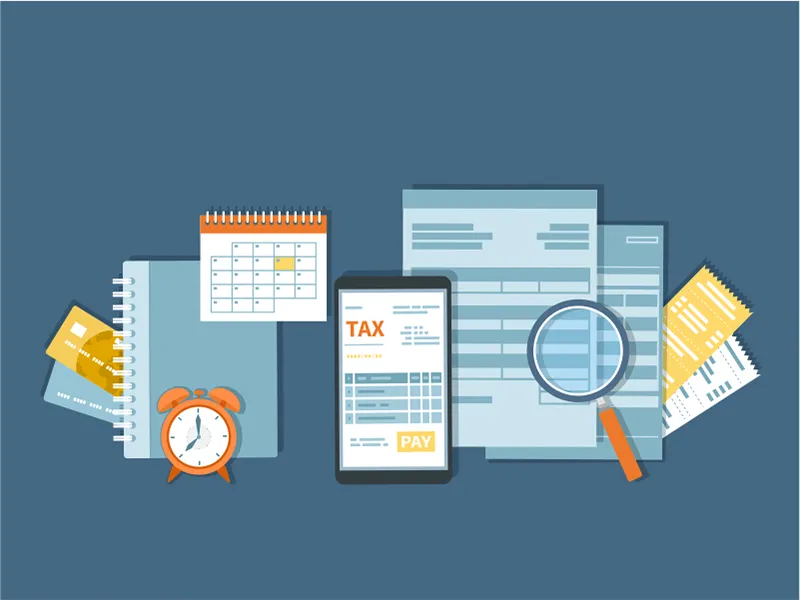
The recent pandemic had confined everyone to their homes for the longest period of time. Offices were empty and work from home became the norm. But we have seen life getting back to normal and one of the biggest changes is going back to offices. The immediate impact of this is the increase in the travel cost to and from offices. But did you know this travel cost is reimbursed and is part of your CTC? The conveyance allowance is reflected in our payslips and covers this basic cost.
What is conveyance allowance?
Conveyance is essentially the daily commute that employees take from their homes to offices and back home. The cost of this daily commute is usually compensated by the Indian employees and forms part of their CTC. The employers offer a conveyance allowance that covers the cost of this daily transportation. The quantum of this allowance depends on various factors like the negotiations between the employer and the employee, the distance between the office and the employee’s residence, office hours, etc. Conveyance allowance is also offered by employers who do not provide any specific or dedicated transport facility to their employees for the daily commute to their offices.
What are the features of conveyance allowance?
Conveyance allowance is part of the salary of the employee and is offered over and above the basic salary along with other allowances and perks. Some of the typical features and when it is applicable are highlighted below.
- Conveyance allowance is usually offered to the employees in the absence of any alternative transport means provided by the employer. It can also be claimed by employees who choose not to opt for the company transport and go for their own means.
- The amount of conveyance allowance that is provided to the employees is not standard and can be altered based on various factors.
- Irrespective of the permissible conveyance allowance from the company, the exemption limit under the Income Tax Act is uniform.
- Employees are not required to provide any proof of travel for claiming the conveyance allowance or the exemption on the same.
- In case the employee has to travel frequently as part of their job profile, companies can provide consolidated travel insurance.
What are the exemptions for conveyance allowance?
As per the Income Tax Act, 1961, employees getting a conveyance allowance as part of their salary are allowed a deduction on the same.
Before the budget of 2015, the exemption on conveyance allowance under section 10(14)(ii) was restricted to Rs. 800 per month or Rs. 9,600 annually. However, in the budget for 2015, this amount was revised to Rs. 1,600 per month or Rs. 19,200 annually. The increased allowance was a much-needed relief for the salaried class. Employees are not required to furnish any records or proof for claiming such exemption. The Department will consider the said exemption on its own up to the maximum available limit as per the record provided by the assessee.
Apart from the above adhoc exemption, there are a few other exemption provisions for conveyance allowance as well. These provisions are mentioned hereunder.
- Employees of a public or a private organization with a physical disability like being visually impaired or being physically handicapped will get an exemption of conveyance allowance at a higher limit of Rs. 3,200 per month.
- UPSC Members are eligible for complete exemption from paying any tax on the conveyance allowance received by them as per provisions of section 10(45).
It is to be noted that as per the budget for 2020, the government has introduced a new income tax regime. Under this new regime, taxpayers can choose to pay taxes as per lower tax slabs. However, should they choose to pay tax under the new income tax regime, they will not get any exemption of such sort.
What are the limits for conveyance allowance?
There is no limit imposed by the Central Government or the Income Tax Act, 1961. Therefore, employers can provide any amount as a conveyance allowance at their discretion. However, the Act provides for limits under section 10(14) in conveyance allowance for Central Government Employees. The details of the same are tabled below.
| Average travel per month for official duty | Travel by personal car | Travel by any other means |
| 201-300 kms | Rs. 1680 | Rs. 556 |
| 301-450 kms | Rs. 2520 | Rs. 720 |
| 451-600 kms | Rs. 2980 | Rs. 960 |
| 601-800 kms | Rs. 3646 | Rs. 1126 |
| More than 800 kms | Rs. 4500 | Rs. 1276 |
Conclusion
This allowance has traditionally been part of the salary structure and is offered by Indian companies as a means to lower the burden on their employees. The Income Tax department further provides relief to a certain extent by allowing exemption on such allowance under section 10(14).
Furthermore, employees are also free from any onus to prove the receipt or use of such allowance for tax purposes. This is due to the decision of the department to allow the same irrespective of the submission or any relevant proofs. Conveyance allowance along with other similar allowances like House Rent Allowance (HRA), Leave Travel Allowance (LTA), Medical Allowance, Dearness Allowance (DA), etc. form part of the salary and are also permissible as deductions or exemptions as the case may be reducing the overall tax liability of the assessee.
FAQs
The maximum permissible limit for conveyance allowance is Rs. 1600 per month or Rs, 19200 annually.
Yes, any employee of the public sector or private sector can claim conveyance allowance which is part of their salary structure
Leave Travel Allowance or LTA is the allowance provided by the company to the employee for their travel within the country or otherwise with or without family. Exemption for the same is available under section 10(5) and can be claimed only twice every four years. Conveyance allowance on the other hand is the allowance provided to compensate for the daily commute to the office from the employee’s residence and back. Exemption for the same can be claimed under section 10(14) of the Income Tax Act, 1961 on annual basis
To compute the taxable conveyance allowance, the assessee will have to deduct the maximum exception limit under section 10(14) from the total conveyance paid by the company. For example, if the company is paying Rs. 2500 as a conveyance allowance per month, Rs. 900 (2500-1600) per month will be taxable in the hands of the assessee.


























